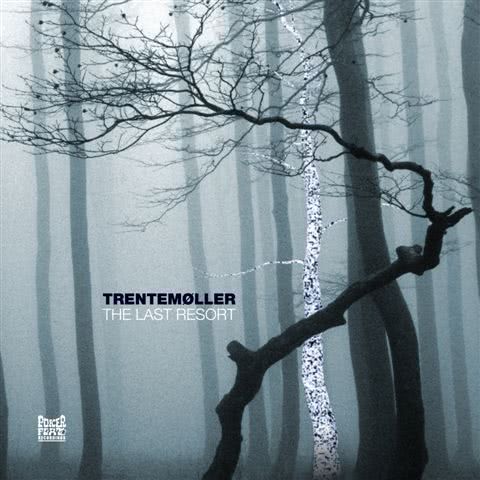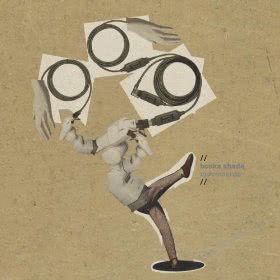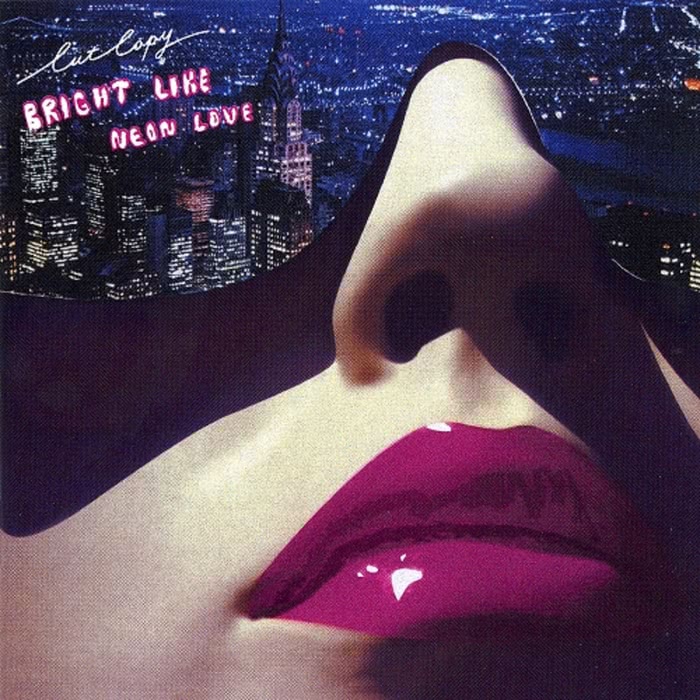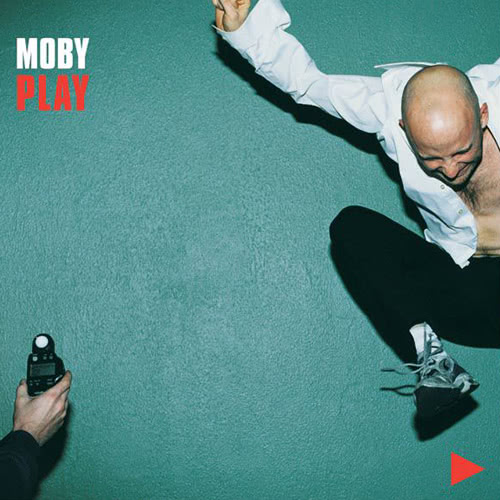When the heads of Tyrone Lindqvist, Jon George, and James Hunt join together, they form the unstoppable infectious dancefloor monster that is RÜFÜS.
Over the past three years the adored trio, hailing from Sydney, have risen to prominence as one of Australia’s unique crossover acts for both indie and dance.
Championed by tracks such as ‘Take Me’ from the gang’s debut record Atlas – named as the second best Aussie album of 2013 according to your votes. The band’s reputation has only grown exponentially, crowning the three-piece as one of Australia’s prime acts.
The band’s sound is a blissful polarisation of chilled-out electronica, dancing disco beats, soaring synthesises and brooding bass tones as Tyrone Lindqvist weaves his dreamlike vocals through the band’s immersive sonic layering.
We were lucky enough to steal some time from lead vocalist/guitarist Lindqvuist, picking his brain for the five records that have changed his life.
Commenting collectively of the golden milk-crate of records, Lindqvist confirmed “all of these albums represent a point in time where I was opening up to new genres,” highlighting two dancefloor killers of the late 2000s, Cut Copy and The Presets, as the instigators of his musical endeavours.
Talking through a nostalgic filter, Lindqvist took to the past to tell of the two Aussie acts’ best work and where it has placed him today, “at the time that was exactly what I wanted, that’s what got me to the ‘next place’ where I was opening up to deeper tones. It opened the doors for me.”
Love Music?
Get your daily dose of metal, rock, indie, pop, and everything else in between.
And what lies on the other side of these doors you may ask? If you caught the band’s recent Triple J appearance for the revered ‘Like A Version’ and witnessed the RÜFÜS rendition of Foals’ ‘My Number’ to the tune of Booka Shade’s ‘Charlotte’, you may have some idea.
That’s right, Cut Copy and The Presets smashed down the barrier to unleash the grandest of inspirations for Lindqvist, and ultimately RÜFÜS as a whole; but full credit to Germany’s Booka Shade and Denmark’s Trentemøller.
Lindqvist confessed in praising his European influences, “when John and I started this RÜFÜS thing for shits’n’giggles, we started off basically trying to make sounds that were very similar to Trentemøller and Booka Shade”.
What about the final and perhaps most important record that has changed Lindqvist’s life? He’ll give you a tasty hint “he made all of [it] from his bedroom, which really resonates with anyone in the last couple of years. We made both of our EPs and the LP in our bedroom, in our own studio, so this album really connected with me.”
The life-changing five are as follows:
Trentemøller – The Last Resort

2006, Poker Flat Recordings
“Hearing this album changed my whole perspective on electronic music. I didn’t really get into electronic music until I was about 17 – 18. A lot of the stuff I was listening to around that time was more electro, a very full sound, very busy, much more heavy. This album kind of just flipped it on its head. I heard this album and it was just something fresh. There isn’t much vocal on the album, it’s almost a cinematic blend that I love. I love film music and the textures Trentemøller plays, it’s like he weaves his way through sound like he’s just swimming.
“It’s just really cruisy, it’s extremely full and then it drops to a minimal nothing yet it feels so full in that nothingness. He’s a genius to me and the guys in the way that he can control a sound and has the ability to hear everything. He covers all the frequencies so delicately and doesn’t clutter it. It gave me an appreciation for mixing and production. It has massively influenced the way we approach our sound.”
Booka Shade – Movements

2006, Get Physical Music
“This record impacted my life heavily around the same time as Trentemøller, just after I’d finished school in 2007. I don’t know where I got this album; but when I started really listening to the record it was very similar to Trentemøller. There are no vocals, very melody based, and very minimal. I think it’s the round, warm and bubbly tones that they play with that we really, really love. They sink into a groove and when they feel like a change or an element of surprise, they do it.
“The song structure on Movements feels fresh. It doesn’t feel like verse/chorus, verse/chorus – they don’t really follow any rules. They don’t have a predetermined nature of what they want to do. The sounds are very consistent and it is very much like a body of work, and I really, really love that. Movements in particular really gave me an appreciation for minimal music and focus.
“Instead of having 10 instruments playing at once, there is two or three and the focus is on one. Everything else is to enhance the focus of that one instrument and that’s why their bass-lines are so catchy just melodic. Booka Shade just feel good.”
The Presets – Beams

2005, Modular Records
“Beams is very much an ‘era’ album for the guys and me. I was into metal and rock music when I was 14 – 16, so this record covered the indie-dance crossover. It has this raw sound that isn’t as polished and clean as normal house or dance music at the time.
“My idea of dance music was of just DJs, but I got to see The Presets live with live drums, live vocals, and some synths. I was like “fuck! These guys are a rock band that play dance music.” For some reason that opened me up to that world a little more, so when I listened to the album I listened to it with a little more openness and I got heaps out of it.
“Beams is a bit grungier and I really love that. Again it is simple, melodic, and a bit whacky. It was cool to see that people were making tunes and didn’t feel like they had to be a certain way. It felt like they were doing their own thing and it was really exciting in Australia, it was happening right here, this local band were making a bit of noise around the globe.”
Cut Copy – Bright Like Neon Love
 2004, Modular Records
2004, Modular Records
“I think it was again just once of those time things. It was the same time as The Presets, it was just a really exciting time, I’d just started opening up to electronic music and the more indie side of it. The vocals aren’t as polished, the sounds are a little fresher, it’s digital but also really crunchy. This album just really encompassed that time for me.
“I would go out and I’d hear songs like ‘Future’ or ‘Saturdays’ – it puts you in a really good place. Same thing with the live band vibe, seeing them as a live act changed my perspective of their sound. The way I’d listen to it was pretty different to just treating them as DJs, they felt like a band. The music in it, again, doesn’t follow too many structures, doesn’t go verse/chorus etc.”
Moby – Play
 1999, V2 Records
1999, V2 Records
“This isn’t so much an album we would reference in creating something similar to the record, like a sound that is similar. It’s more of an album that really opened me up to the world of mixing and matching genres; of not being glued to one genre. Moby takes samples from old soul songs and a lot of gospel songs and he cuts and chops them up and puts it in with this almost trance-like kind of music.
“The blend and the mix of the genres is just so fresh, it isn’t anything like I’d heard before. With Play, he managed to crossover to a wide audience. It was heard by the masses and it just connected. I don’t know, I just listen to that album and it feels great.
“I didn’t see this so much as dance music, it’s kind of more down tempo, it feels way more chilled out, it isn’t as dance floor or clubby like a DJ would have to play it. You can listen to it while you’re at the beach!”

































